Thinking about doing cardio on an empty stomach to burn more fat? You’re not alone. Fasted cardio has become a go-to strategy for cutting body fat and boosting definition.
But there’s one big concern—muscle loss. That’s where BCAAs (Branched-Chain Amino Acids) step in.
Are they really the key to protecting your gains while you torch fat? Or just another overhyped supplement?
In this article, I’ll break it all down based on real experience—as a coach, an athlete, and someone who’s used BCAAs during early morning fasted training for years.
Let’s dive into what actually works—and what’s just supplement marketing fluff.
Table of contents
- Are BCAAs Effective for Fasted Cardio?
- What Happens During Fasted Cardio?
- How BCAAs Work: Muscle Preservation and Energy
- Do BCAAs Actually Boost Fat Loss?
- When and How to Take BCAAs for Best Results
- BCAAs vs EAAs vs Whey: What’s Better for Fasted Training?
- Who Should Use BCAAs for Fasted Cardio?
- Conclusion: Are BCAAs Worth It for Fat Loss and Fasted Cardio?
Are BCAAs Effective for Fasted Cardio?
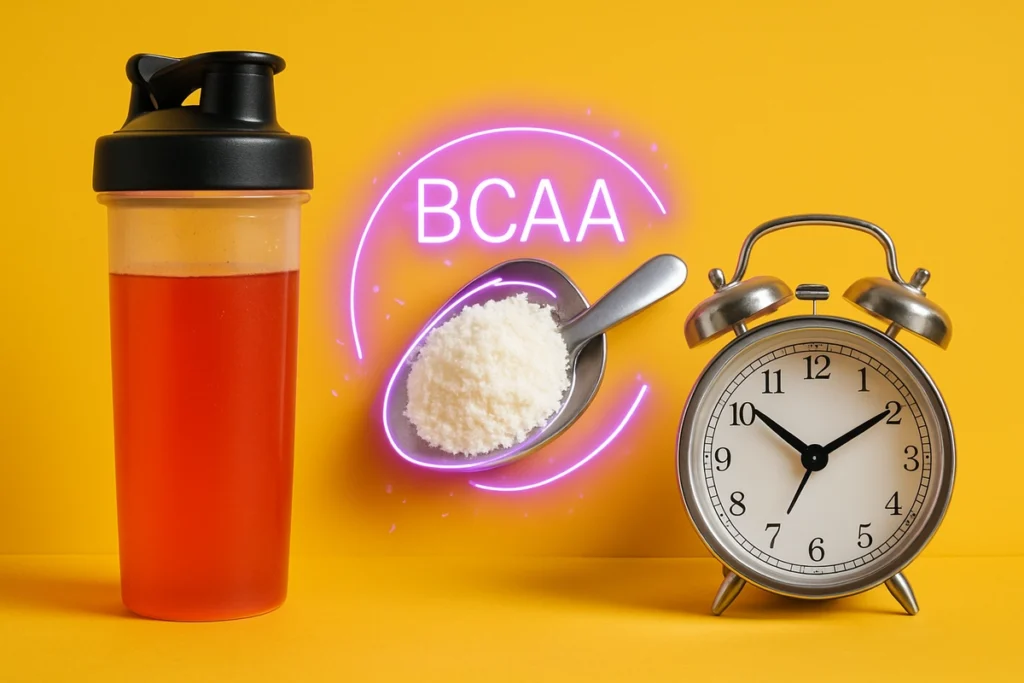
Let’s get straight to it—BCAAs can help during fasted cardio, but not for the reason most people think.
They won’t magically burn more fat, but they can help protect muscle when you’re training without food in your system.
That alone makes them a smart tool during a fat loss phase—especially if you’re lean or cutting aggressively.
From my own experience, and from coaching dozens of clients, the biggest benefits are less muscle soreness, improved energy, and better recovery.
For more on BCAA timing, check out Best Time to Take BCAAs.
What Happens During Fasted Cardio?

When you train in a fasted state—usually first thing in the morning—your body’s insulin levels are low. That creates an ideal condition for fat burning.
However, fasted training also increases muscle breakdown. Your body might tap into amino acids from muscle as an energy source.
Over time, that can cost you hard-earned gains—especially during a cut.
To learn more about BCAA use during fasting, read BCAAs During Intermittent Fasting.
How BCAAs Work: Muscle Preservation and Energy
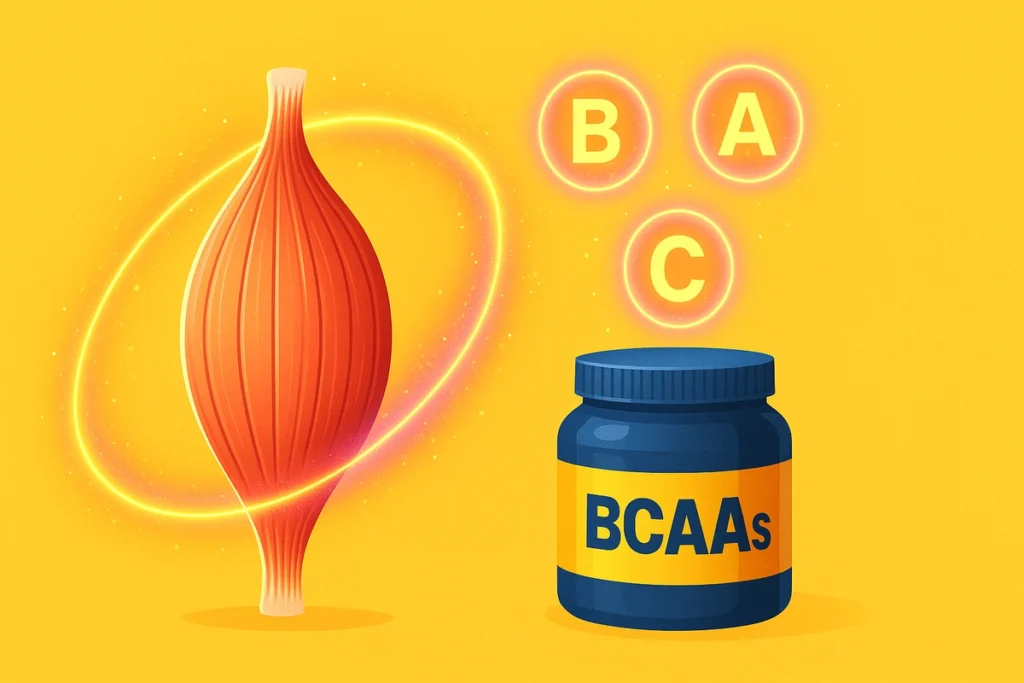
BCAAs—especially leucine—play a critical role in stimulating muscle protein synthesis and reducing muscle breakdown.
They also provide a minor energy source, which can help you push through early morning cardio sessions without feeling drained.
I’ve personally used BCAAs during many cutting phases. They consistently helped me stay energized and reduce post-workout fatigue.
One client, Markus from Sweden, started sipping 8g of BCAAs before morning cardio. His strength stayed stable, and he didn’t lose muscle—even in a deep deficit.
Want to learn how BCAAs support recovery? Visit BCAA for Muscle Soreness.
Do BCAAs Actually Boost Fat Loss?
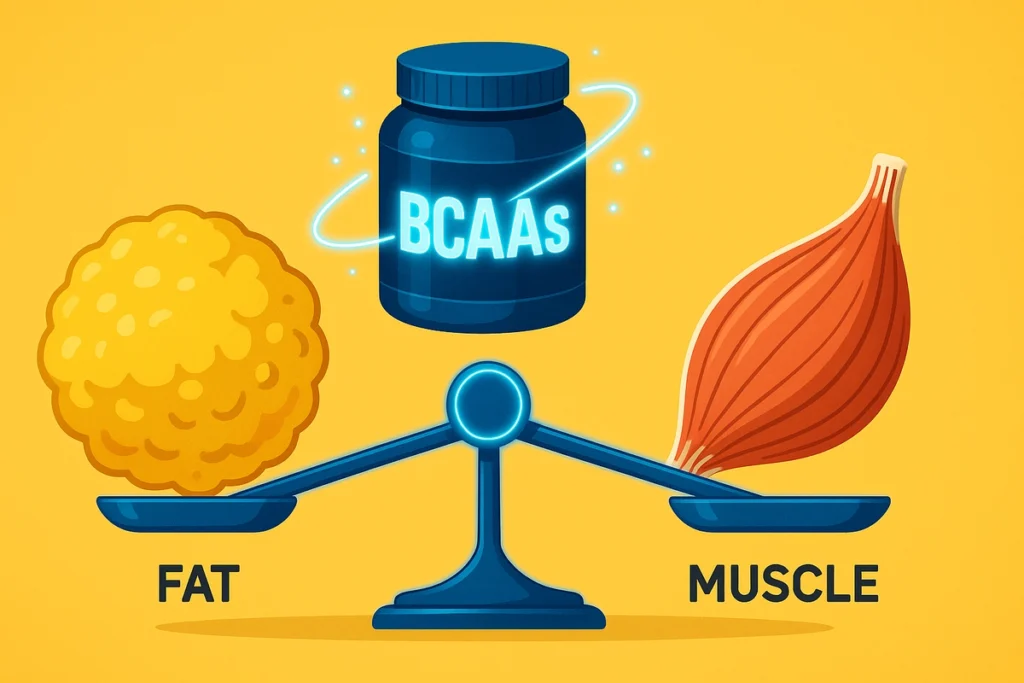
Here’s the truth: BCAAs don’t directly burn fat.
What they do is help you preserve muscle, which keeps your metabolism high. The more muscle you maintain, the more efficient your body becomes at burning fat long-term.
When I ran a 4-week mini cut, I used BCAAs with fasted cardio to help retain muscle tone. The fat dropped, and I stayed full and strong.
For a full breakdown on how BCAAs compare to other proteins, check out BCAA vs Protein Powder: Do You Really Need Both?.
When and How to Take BCAAs for Best Results
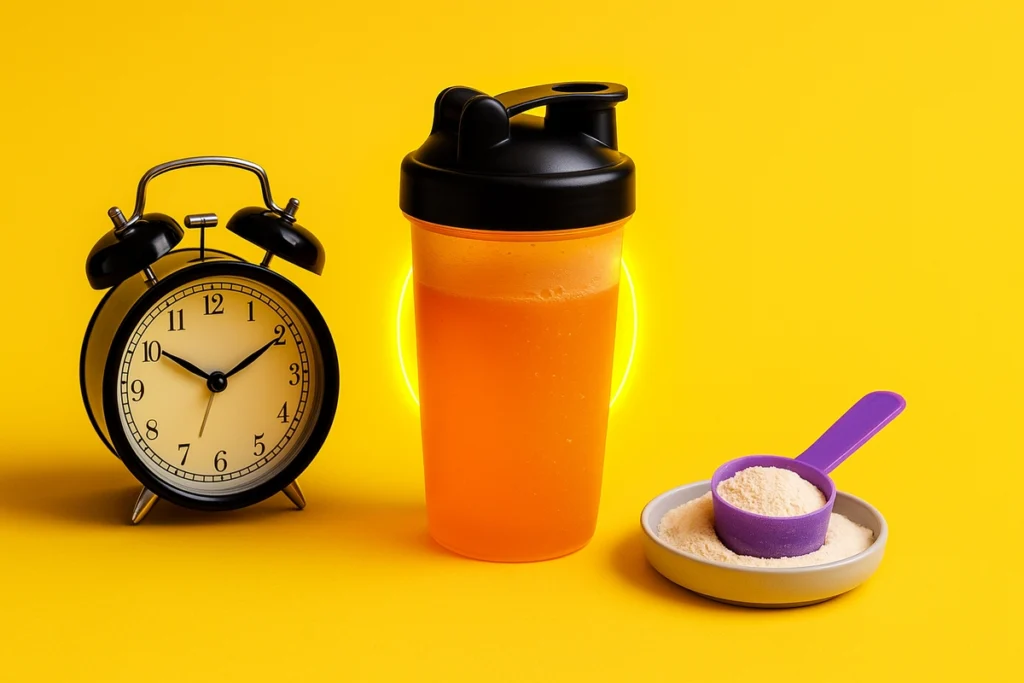
Timing is key.
Take 6–8 grams of BCAAs about 15–20 minutes before cardio. That gives your body time to absorb and use them effectively.
This strategy has worked consistently for both myself and my clients. For example, during a beach cut, I followed this exact routine—BCAAs before a 30-minute morning walk—and kept all my muscle while dropping fat.
Learn how to mix BCAAs properly for better effects here: Mix BCAAs for Best Absorption.
And for dosage guidelines based on goals and body size, visit BCAA Dosage for Athletes.
BCAAs vs EAAs vs Whey: What’s Better for Fasted Training?
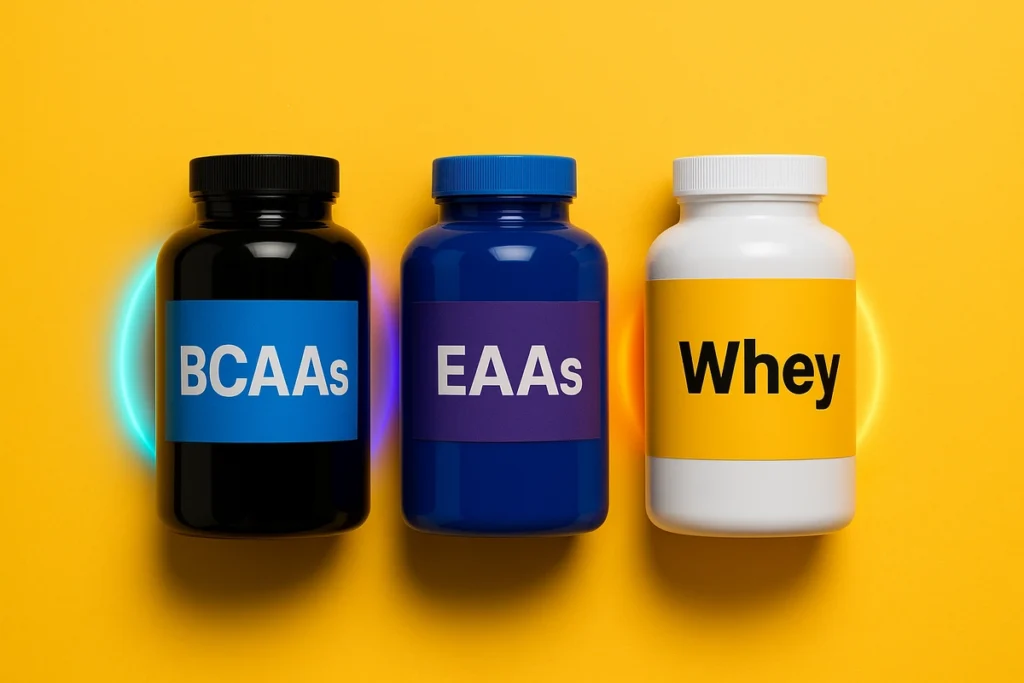
Let’s break it down:
- EAAs are more complete and ideal for muscle growth.
- Whey protein is effective—but breaks your fast and can feel heavy.
- BCAAs are fast, light, and ideal for cardio on an empty stomach.
I personally reserve EAAs for later in the day. In the morning, BCAAs are my go-to. One client, Natalie from Canada, used BCAAs during Ramadan fasts and noticed better endurance and fewer cravings.
Want a full comparison? Visit EAAs vs BCAAs vs Protein Guide and EAAs vs BCAAs for Workouts.
Who Should Use BCAAs for Fasted Cardio?

You’ll benefit from BCAAs if:
- You train fasted and want to preserve muscle
- You’re in a calorie deficit
- You’re lean or cutting for a specific goal
- You struggle with energy during morning workouts
Clients like Diego from Brazil preferred black coffee instead. But others—especially those with muscle to protect—noticed real differences in recovery and energy.
For women specifically, I recommend reading BCAAs for Women Strength Training.
You can also find tips on timing and food interactions here: BCAA With or Without Food Guide.
Conclusion: Are BCAAs Worth It for Fat Loss and Fasted Cardio?
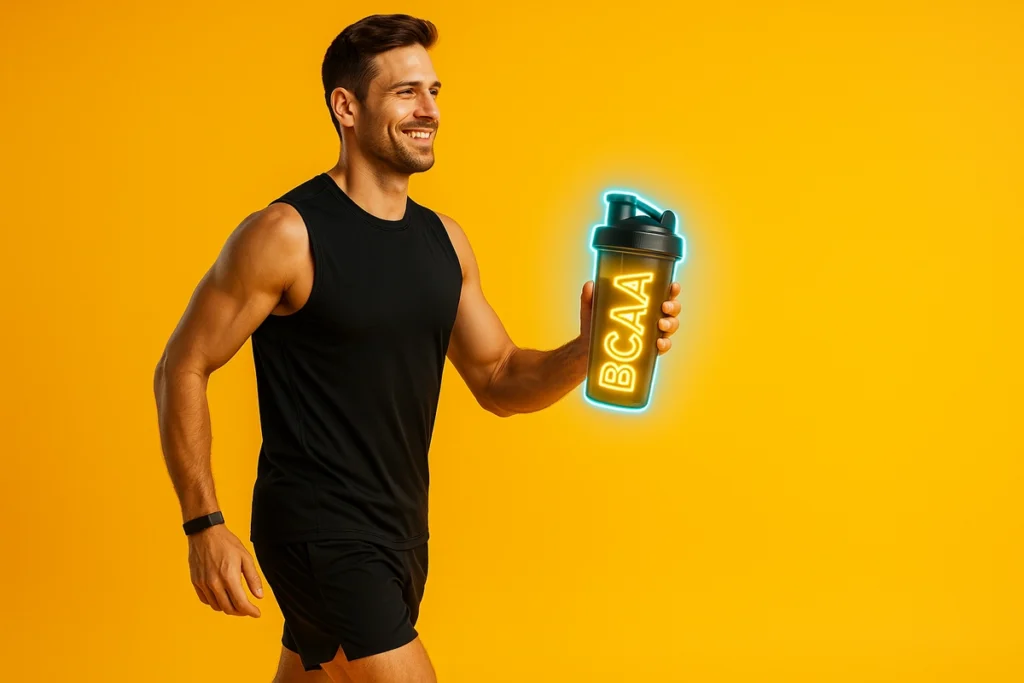
Yes—when used smartly.
BCAAs won’t directly burn fat, but they’ll help you train harder, recover faster, and hold on to muscle when it matters most.
In my experience, they’re a valuable tool during fasted cardio and cutting phases. They’re not for everyone—but if your goal is definition without sacrifice, BCAAs are worth it.



Leave a Reply